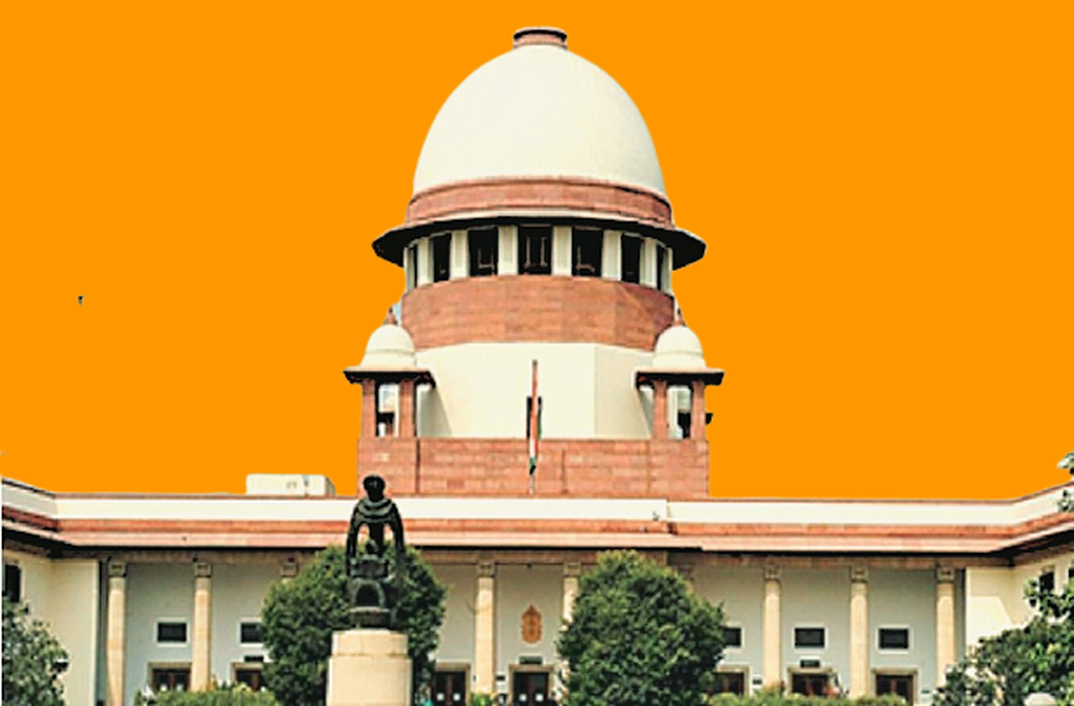In Civil Appeal Nos. 4578-4580 of 2022-SC- Principle of estoppel cannot override law: SC sets aside order whereby principle of estoppel was applied over statutory service rules for promotion of BHU employees Justices Dinesh Maheshwari & Vikram Nath [16-06-2022]

Read Judgment: KRISHNA RAI (Dead) THROUGH LRs & ORS Vs. BANARAS HINDU UNIVERSITY THROUGH REGISTRAR & ORS
Tulip Kanth
New Delhi, June 18, 2022: In a case pertaining to the statutory service rules prescribing the procedure for promotion of Class-IV employees to Class-III, working in the Banaras Hindu University, Varanasi, the Supreme Court has confirmed the view of the Single Judge that the statutory rules would prevail over principle of estoppel and such rules must be strictly adhered to.
Referring to the judgment of the Top Court in Tata Chemicals Ltd. Vs. Commissioner of Customs (preventive), Jamnagar wherein it has been laid down that there can be no estoppel against law, the Division Bench of Justice Dinesh Maheshwari and Justice Vikram Nath asserted, “It is settled principle that principle of estoppel cannot override the law. The manual duly approved by the Executive Council will prevail over any such principle of estoppel or acquiescence.”
In this case, for filling up 14 posts of Class-III (Junior Clerk Grade) by way of promotion, the University issued a Notification/Advertisement inviting applications from permanent Class-IV employees for promotion as Junior Clerk.Accordingly, 14 selected respondents-candidates were issued appointment letters.The appellants made a representation against the decision to appoint the respondents but the same was rejected by the competent authority. Aggrieved, the appellants filed Writ Petition on the ground that the Notification did not provide for any interview, but later on, changing the rules, the Board of Examiners which did not have any authority or power to amend paragraph 6.4 laying down the eligibility conditions introduced an interview.
The Single Judge allowed the writ petition and directed BHU to hold fresh selections. BHU as also the private respondent preferred Appeals and while allowing these appeals, the Division Bench opined that the appellants having appeared in the examination process as also the interview without any protest, upon being unsuccessful could not have challenged the selection process. Aggrieved thereof, the appellants filed this appeal. The main issue before the Bench was whether the principle of estoppel and acquiescence will prevail over statutory service rules prescribing the procedure for promotion of Class-IV employees to Class-III working in the University.
Observing that the principle of estoppel was wrongly applied, the Apex Court held that the Division Bench having approved the reasoning of the learned Single Judge, ought not to have interfered in the judgment of the Single Judge on a technical plea.
Referring to its judgment in Dr. Krushna Chandra Sahu and others Vs. State of Orissa the Top Court opined that in the present case, there was no authorization to the Board of Examiners to lay down the selection criteria and there was clear violation of the suitability criteria laid down by the rule making authority.
Thus, allowing the appeal, the Bench held that all the appellants who are found to be eligible for promotion as per the existing rules and as directed by the Single Judge, would be extended all consequential benefits. Further, where the appellants had died, it was directed that the benefit would be extended to their legal heirs entitled under law for the same.
Sign up for our weekly newsletter to stay up to date on our product, events featured blog, special offer and all of the exciting things that take place here at Legitquest.




Add a Comment